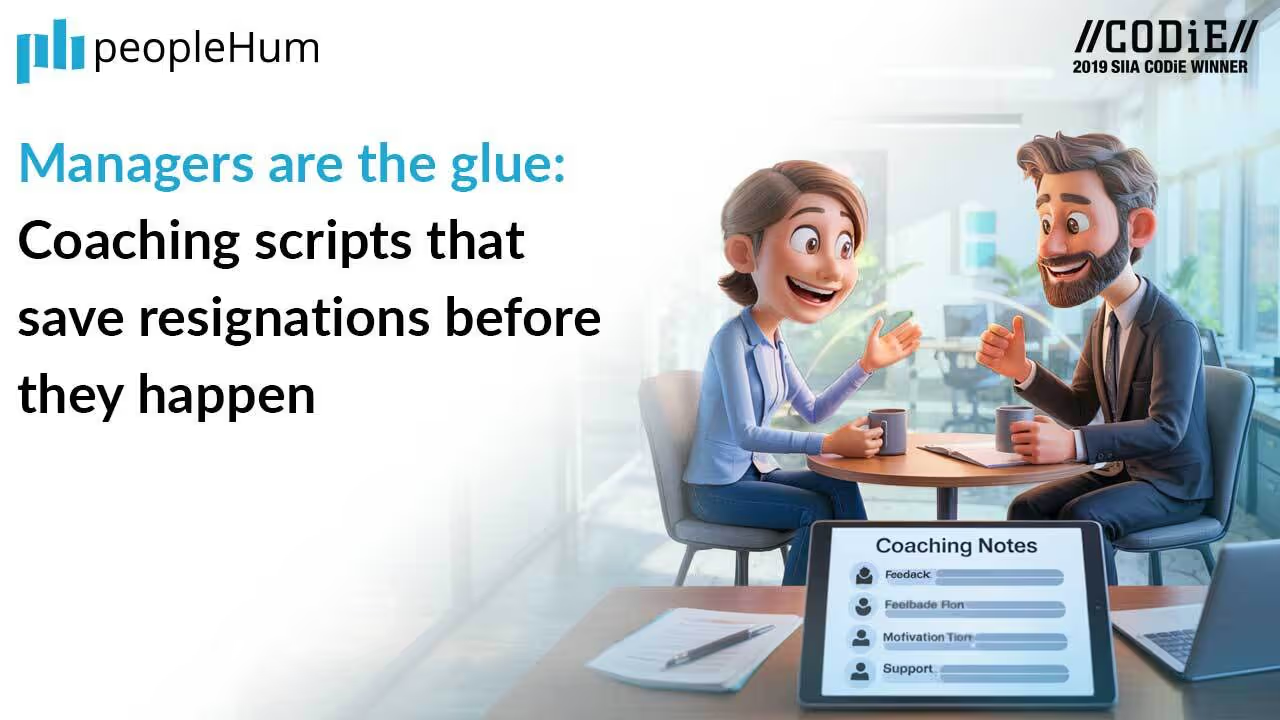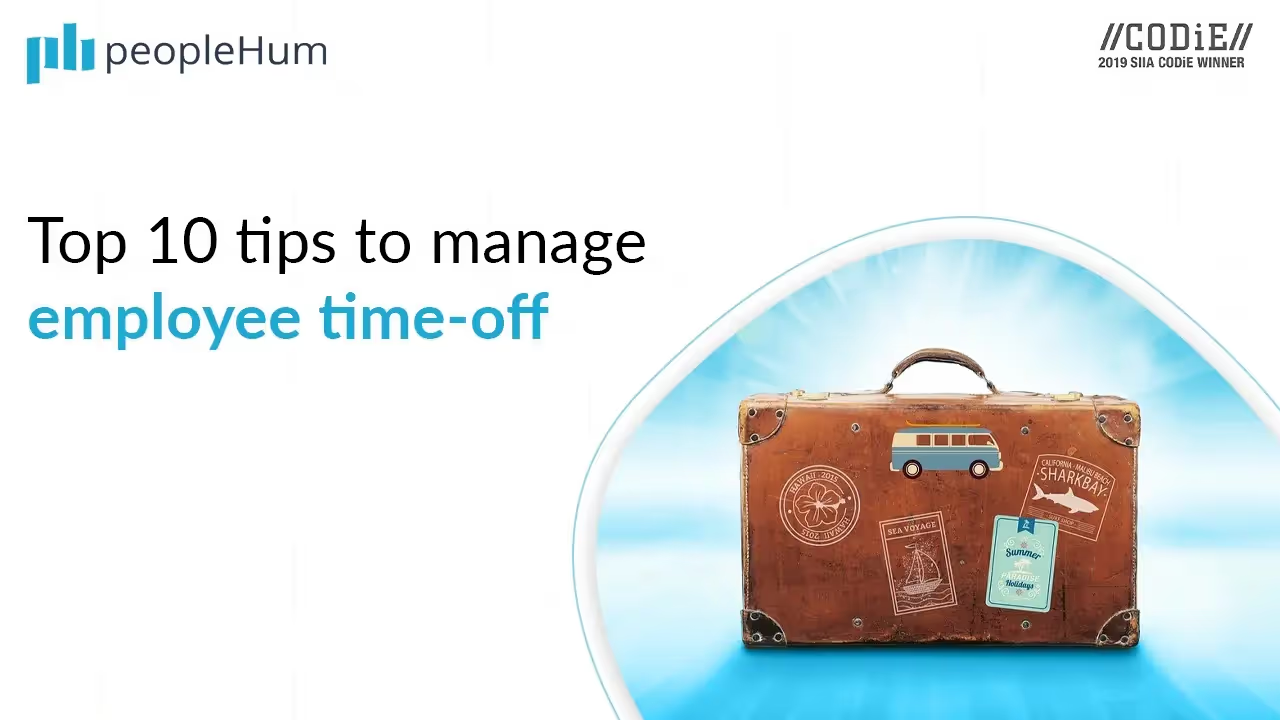The world is changing, the continents are drifting, the global temperature is increasing, and the way we work is almost unrecognizable at times.

We have seen an exodus of organizations move from annual appraisal events to a constant stream of conversations. Employee transactions are no longer faxed to the personnel department for processing. The workforce experience is changing, life for the front lines is getting modernized, digitized and consumerized. But for one group, change is expected but not always supported. What group is being taxed to facilitate this paradigm shift? Our managers.
Why things are changing
The role of the manager is changing due in part to the change in the workforce experience. Employees are not static, they are generational, and within that they are diverse. The new generations of the employee are using chatbots to buy shoes, apps to turn on their lights, wireless devices to watch cable (yeah that’s an oxymoron). This generation is being supplied technology to meet their needs and support the way they choose to live. With low unemployment and over 60% of turnover being voluntary, employers are looking to deliver an experience that employees are addicted to, need, and expect. When you combine the ‘consumerization’ of the workforce experience with a focus on employee engagement, performance development and workforce learning the role of the manager inherently changes from merely being a boss to a leader. The function changes — not the person . . . and that’s the rub.
How is the role of the manager changing
With the needs of the employee and the expectations of the organization increasing the purpose of the manager transforms. The purpose is changing both conceptually as well as functionally. Theoretically, we see the boss traditionally (maybe stereo-typically) portrayed through the “do as I say and not as I do” . . . And perhaps slightly authoritarian.
Functionally the boss is a manager of a discrete set of workers accountable for the outputs of their employees. The change to a leader conceptually is one who collaborates and engages with their team, functionally we see leaders responsible for their team’s development not to mention they may no longer be involved with the daily work or projects team members participate in.

Let's look at a few examples of how the role is changing to support workforce experience changes:
Performance development has changed (for many) from filling out appraisal forms and reviewing last years activities to setting behavioral goals and having meaningful and constructive conversations. The workforce is asking for more coaching and development. According to Gallup, 87% of millennials say professional development or career growth opportunities are very important. These employees will be looking directly to their leader to support this need. Managers will need to coach, collaborate and develop these employees. Managers are expected to grow a team of top talent that the organization can tap into rather than keep theses individuals shielded from opportunities that may pull talent away from the manager.
Another facet of professional development and career growth is the opportunity to learn and develop new skills. In times past a manager would only be involved with “learning” when a new compliance training was sent out to their employees. Now we see companies striving to become learning organizations and that requires way more than compliance e-learnings. A manager's ability to create and curate meaningful learning content is becoming more of a necessity. The manager may have the help of machine learning to recommend content, but they are still responsible for creating a culture that encourages continuous learning. Again all of this change finds its roots in the workforce experience renaissance.

What we see time and time again is that a fantastic amount of thought and effort goes into to designing the workforce experience (when done correctly) but only a tiny fraction of energy is put towards acclimatizing and upskilling current managers to all of this change. At the heart of all of this workforce experience effort is our managers, encouraging our people, supporting the process and championing our technology. If we fail to identify what the managers need, want and deserve through all of this . . . we will fail. We have seen it happen to organizations that don’t develop their managers ability to coach and more holistically to be leaders. Exceptional processes and the best of breed technology mean nothing if our managers are not ready to do the new type of work.
Empathy will be your greatest ally when starting down the path to redefine the workforce experience, and the role of the manager in it. I was working with an organization last year that was undertaking a performance development redesign. One of the very first steps was to identify the types of managers impacted, and to learn as much as we could about what made them tick. We examined and mapped their journeys through the current cycle while asking them how they see their role changing. We were able to capture their thoughts and feeling, from what scared them the most to what excited them about the future. Through this process we redefined the role of the manager based on feedback from those most impacted. We were also able to create a digital toolkit for managers to support them and encourage participation. As you look to redesign and redefine the role, be prepared to build out multiple manager personas and respectively many manager journey maps to truly understand how the role of the manager will change for your organization.
About the author
Jason Averbook is the CEO & Co-Founder at Leapgen, the digital transformation company that helps HR solution providers rethink how to better design and deliver workforce services for the NOW of Work. He is a global leading analyst, thought leader and consultant in the area of Human Resources, the future of work and the impact of technology on that future. He has more than 25 years of experience in the HR and technology industries and its immense potential in the future of work.































%20Management%20copy-min%20(1).avif)



.avif)














